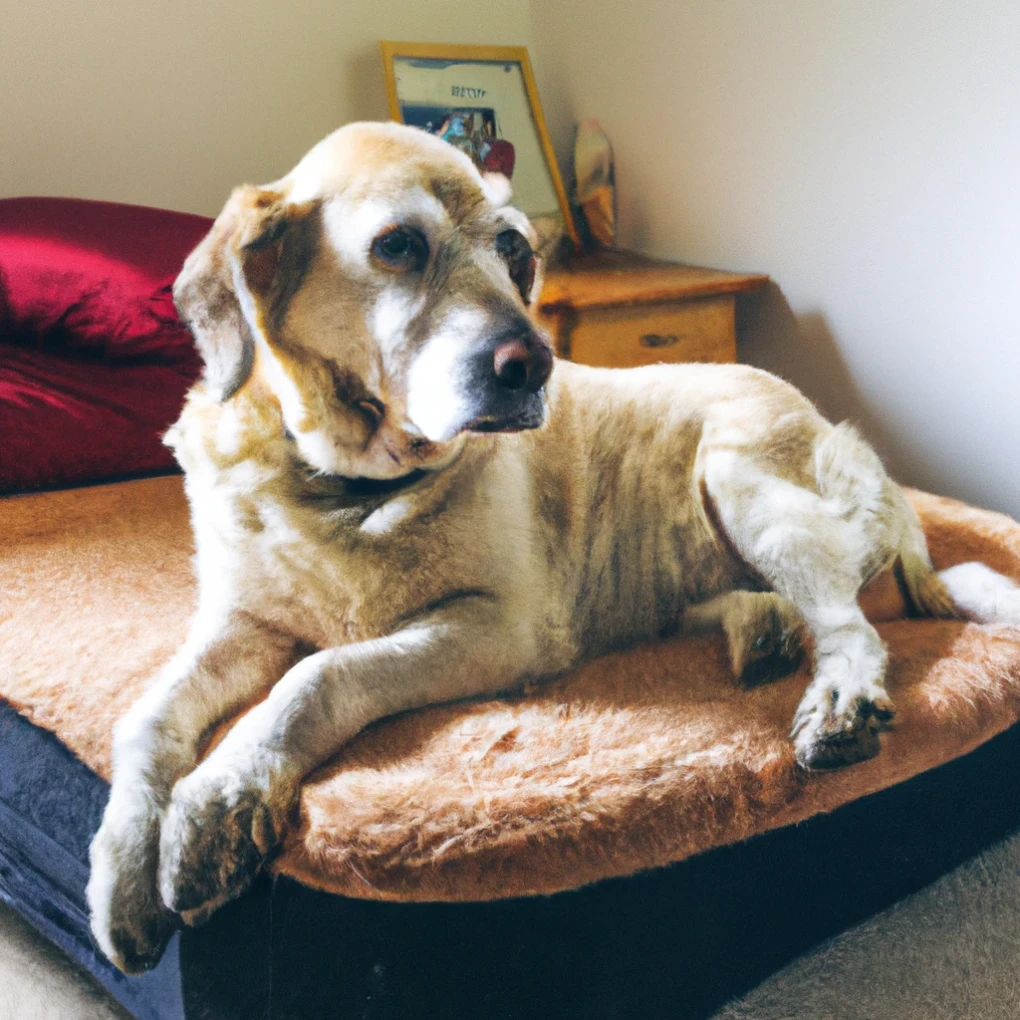Golden Years Care: Ensuring Comfort for Your Aging Dog

Taking care of our furry friends as they transition into their golden years requires compassion, understanding, and proactive measures. Just as humans face challenges as they age, senior dogs experience their unique set of age-related changes. Whether you're a pet breeder or a loving pet owner, this guide is here to help you ensure that your aging canine friend enjoys not just a long life but a high-quality one.
Understanding Dog's Aging
All dogs age differently, and much of this depends on their breed. Typically, dogs aged seven or older are considered senior. The AAHA points out that a dog is typically considered a senior when they're in the last 25% of their expected lifespan. It's essential to remember that aging isn't a disease in itself but rather a stage of life with its health implications.
Diet and Nutrition
As dogs age, their dietary needs undergo significant changes. Their metabolism slows down, and this, coupled with reduced physical activity, can lead to weight gain. Conversely, some senior dogs may lose weight due to health issues or loss of appetite. Hence, tailored nutrition becomes essential.
Optimal Food Choices:
- High-Quality Protein: Helps maintain muscle mass. Consider foods with lean meats like chicken, turkey, or fish.
- Easily Digestible: Senior dogs can have sensitive stomachs. Foods with fewer fillers and high digestibility are ideal.
- Balanced Fats: Omega-3 fatty acids can promote healthy skin and coat, and even support joint health.
Supplements:
- Omega-3: Reduces inflammation, which can be beneficial for dogs with arthritis. It also supports brain health, which is crucial for senior dogs.
- Glucosamine and Chondroitin: These are commonly recommended for joint health. They can improve joint mobility and reduce pain in dogs with arthritis.
- Probiotics: As the digestive system can become sensitive with age, probiotics can aid in digestion and nutrient absorption.
- Antioxidants: Vitamins C and E can boost the immune system and help combat the effects of aging.
Physical and Mental Exercise
Physical Activity:
Regular physical activity is crucial for several reasons:
- Joint Health: Keeps the joints lubricated and can slow the progression of arthritis.
- Weight Management: Helps prevent obesity, a common issue in senior dogs.
- Overall Well-being: Releases endorphins, promoting a happy mood.
Examples of Physical Activities:
- Leisurely Walks: Adjust the pace based on your dog's comfort.
- Swimming: It's a low-impact exercise that's gentle on the joints.
- Fetch with Soft Toys: Ensure it's a gentle play to avoid straining.
- Tug-of-War: Using a soft rope or toy, but make sure it's a gentle tug.
Mental Stimulation:
Engaging the dog's brain can delay the onset of age-related cognitive issues.
Ways to Mentally Stimulate:
- Interactive Toys: Puzzle toys where they can get treats as rewards.
- Teaching New Commands: Simple tricks or commands can keep their brain active.
- Hide and Seek: Hide treats or toys and let them find them.
- New Environments: Occasional visits to new parks or places for a change of scenery.
Regular Veterinary Visits
The importance of regular vet visits cannot be overstated. The AAHA recommends check-ups every six months for senior dogs. These visits can ensure early detection of conditions and regular health checks, including dental health and vaccinations.
Home Adjustments
To make homes more senior-dog-friendly:
- Non-Slip Mats: These can prevent slips and falls, especially in areas like the kitchen or bathroom.
- Elevated Feeding Stations: This can make eating and drinking more comfortable, especially for dogs with neck or back issues.
- Night Lights: Helps dogs with deteriorating vision navigate better during the night.
- Cozy Corners: Create warm, quiet corners for them to retreat and relax.
Grooming and Dental Care
Regular grooming is essential, even for senior dogs. This includes:
- Nail trimming.
- Hair brushing.
- Using quality shampoos but avoiding over-washing.
Dental care is equally crucial. Brush their teeth regularly and ensure annual dental cleanings. Some breeds might need more frequent cleanings.
Recognizing and Addressing Pain
Signs your dog might be in pain include:
- Decreased Activity: Reluctance to move, jump, or play.
- Over-grooming: Licking or biting specific areas of their body.
- Whining or Groaning: Especially when moving or being touched.
- Changes in Eating Habits: Refusing food or reduced appetite.
- Restlessness: Unable to settle, pacing back and forth.
If you notice any of these signs, it's crucial to consult with a vet. They might recommend pain relief medications, therapies like massage or acupuncture, or dietary changes.
Conclusion
Caring for a senior dog requires love, patience, and understanding. By staying informed and proactive, you can ensure that your loyal companion enjoys their golden years in comfort and happiness. Remember, they've given you a lifetime of love; it's our turn to make their twilight years the best they can be.
Note: While this guide provides foundational knowledge, always consult with your veterinary team for personalized care tailored to your senior dog's unique needs.